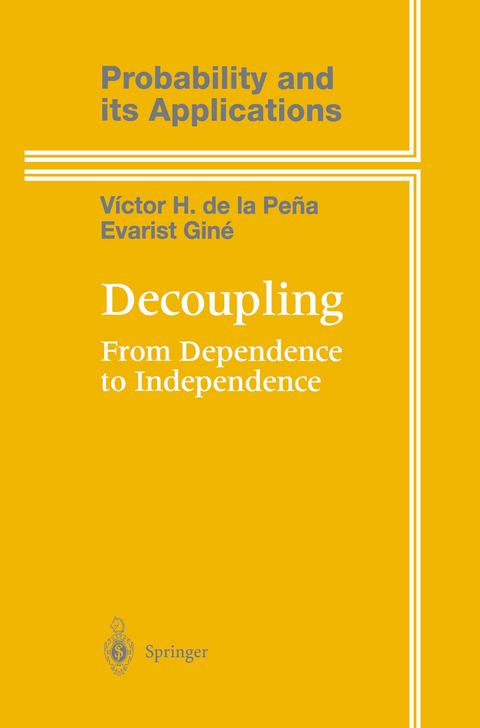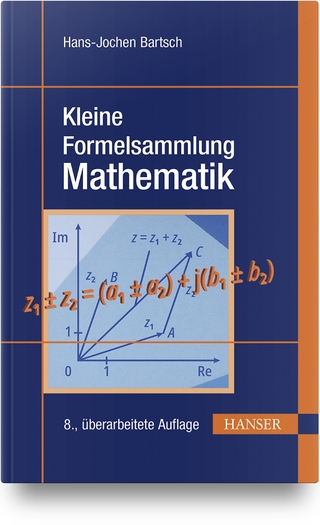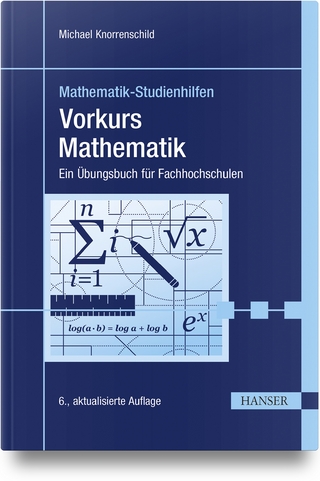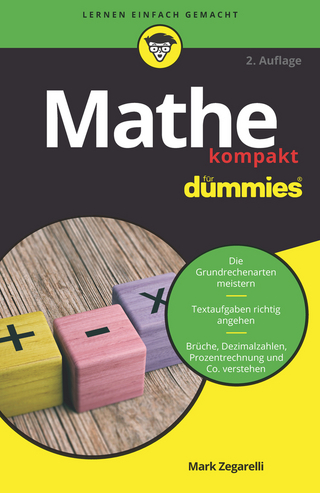
Decoupling
Springer-Verlag New York Inc.
978-1-4612-6808-6 (ISBN)
Decoupling theory provides a general framework for analyzing problems involving dependent random variables as if they were independent. It was born in the early eighties as a natural continuation of martingale theory and has acquired a life of its own due to vigorous development and wide applicability. The authors provide a friendly and systematic introduction to the theory and applications of decoupling. The book begins with a chapter on sums of independent random variables and vectors, with maximal inequalities and sharp estimates on moments which are later used to develop and interpret decoupling inequalities. Decoupling is first introduced as it applies in two specific areas, randomly stopped processes (boundary crossing problems) and unbiased estimation (U-- statistics and U--processes), where it has become a basic tool in obtaining several definitive results. In particular, decoupling is an essential component in the development of the asymptotic theory of U-- statistics and U--processes. The authors then proceed with the theory of decoupling in full generality. Special attention is given to comparison and interplay between martingale and decoupling theory, and to applications. Among other results, the applications include limit theorems, momemt and exponential inequalities for martingales and more general dependence structures, results with biostatistical implications, and moment convergence in Anscombe's theorem and Wald's equation for U--statistics. This book is addressed to researchers in probability and statistics and to graduate students. The expositon is at the level of a second graduate probability course, with a good portion of the material fit for use in a first year course. Victor de la Pe$a is Associate Professor of Statistics at Columbia University and is one of the more active developers of decoupling
1 Sums of Independent Random Variables.- 1.1 Lévy-Type Maximal Inequalities.- 1.2 Hoffmann-J?rgensen Type Inequalities.- 1.3 The Khinchin—Kahane Inequalities.- 1.4 Moment Bounds.- 1.5 Estimates with Sharp Constants for the La-Norms of Sums of Independent Random Variables: The L-Function.- 1.6 References for Chapter 1.- 2 Randomly Stopped Processes With Independent Increments.- 2.1 Wald’s Equations.- 2.2 Good-Lambda Inequalities.- 2.3 Randomly Stopped Sums of Independent Banach-Valued Variables.- 2.4 Proof of the Lower Bound of Theorem 2.3.1.- 2.5 Continuous Time Processes.- 2.6 Burkholder—Gundy Type Inequalities in Banach Spaces.- 2.7 From Boundary Crossing of Nonrandom Functions to First Passage Times of Processes with Independent Increments.- 2.8 References for Chapter 2.- 3 Decoupling of U-Statistics and U-Processes.- 3.1 Decoupling of U-Processes: Convex Functions.- 3.2 Hypercontractivity of Rademacher Chaos Variables.- 3.3 Minorization of Tail Probabilities: The Paley—Zygmund Argument and a Conditional Jensen’s Inequality.- 3.4 Decoupling of U-processes: Tail Probabilities.- 3.5 Randomization136.- 3.6 References for Chapter 3.- 4 Limit Theorems for U-Statistics.- 4.1 Some Inequalities; the Law of Large Numbers.- 4.2 Gaussian Chaos and the Central Limit Theorem for Canonical U-Statistics.- 4.3 The Law of the Iterated Logarithm for Canonical U-Statistics.- 4.4 References for Chapter 4.- 5 Limit Theorems for U-Processes.- 5.1 Some Background on Asymptotics of Processes, Metric Entropy, and Vapnik—?ervonenkis Classes of Functions: Maximal Inequalities.- 5.2 The Law of Large Numbers for U-Processes.- 5.3 The Central Limit Theorem for U-Processes.- 5.4 The Law of the Iterated Logarithm for Canonical U-Processes.- 5.5 Statistical Applications.- 5.6References for Chapter 5.- 6 General Decoupling Inequalities for Tangent Sequences.- 6.1 Some Definitions and Examples.- 6.2 Exponential Decoupling Inequalities for Sums.- 6.3 Tail Probability andLpInequalities for Tangent Sequences I.- 6.4 Tail Probability and Moment Inequalities for Tangent Sequences II: Good-Lambda Inequalities.- 6.5 Differential Subordination and Applications.- 6.6 Decoupling Inequalities Compared to Martingale Inequalities.- 6.7 References for Chapter 6323.- 7 Conditionally Independent Sequences.- 7.1 The Principle of Conditioning and Related Results.- 7.2 Analysis of a Sequence of Two-by-Two Tables.- 7.3 SharpLpComparison of Sums of Arbitrarily Dependent Variables to Sums of CI Variables.- 7.4 References for Chapter 7.- 8 Further Applications of Decoupling.- 8.1 Randomly Stopped Canonical U-Statistics.- 8.2 A General Class of Exponential Inequalities for Martingales and Ratios.- 8.3 References for Chapter 8.- References.
| Erscheint lt. Verlag | 2.10.2012 |
|---|---|
| Reihe/Serie | Probability and Its Applications |
| Zusatzinfo | XV, 392 p. |
| Verlagsort | New York, NY |
| Sprache | englisch |
| Maße | 155 x 235 mm |
| Themenwelt | Mathematik / Informatik ► Mathematik ► Allgemeines / Lexika |
| Mathematik / Informatik ► Mathematik ► Wahrscheinlichkeit / Kombinatorik | |
| ISBN-10 | 1-4612-6808-7 / 1461268087 |
| ISBN-13 | 978-1-4612-6808-6 / 9781461268086 |
| Zustand | Neuware |
| Haben Sie eine Frage zum Produkt? |
aus dem Bereich


